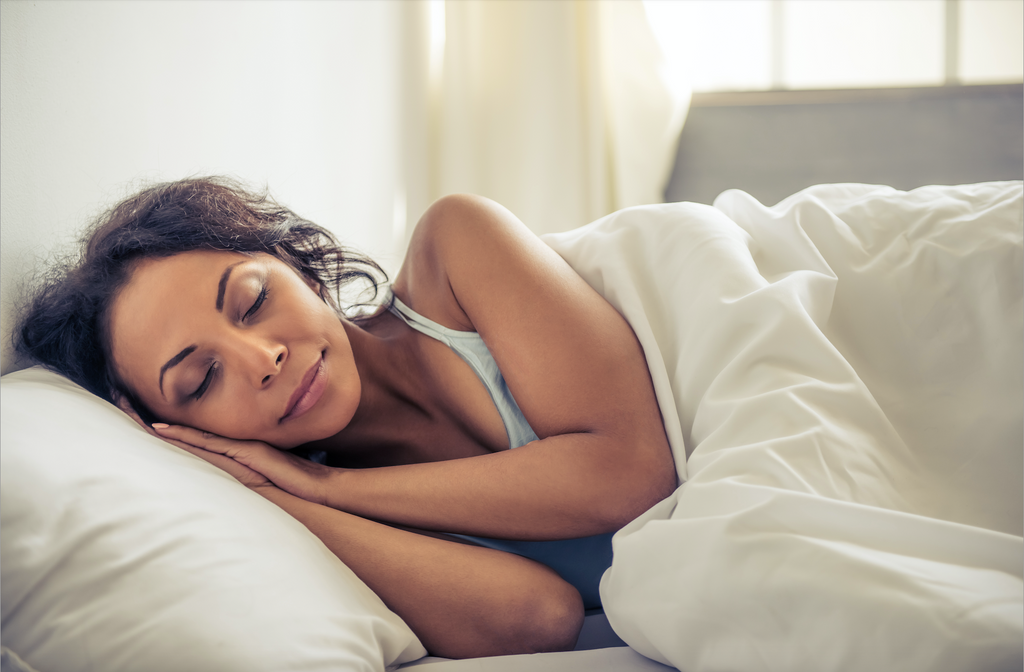Sleep is the elixir of life. You need sleep to function, plain and simple. In scientific studies that disrupt a person's sleeping patterns, they completely break down both mentally and physically. Oddly enough, humans are the only animals that voluntarily limit our own sleep. Most of us COULD go to bed earlier… but we don’t.
We have all excused our grumpiness, sluggishness or moodiness by telling ourselves: “I’m just tired”. Lack of adequate sleep, less than the optimal 7 hours (can be different between individuals) can cause havoc for cognition. Lack of concentration, attention, focus, and motivation, as well as brain fog can all be telltale signs that you are not getting enough sleep.
Falling asleep quickly, doesn’t mean you have great sleep quality. Do you fall asleep or wake up at the same time every day? Do you need an alarm clock to wake you up? Do you feel groggy when you wake up? Do you find you need a nap in the afternoon or you can’t function without a coffee? If you answered yes to any of these, it could mean that you might not have the best sleep quality and quantity.
6 Skills to improve your quantity and quality of sleep:
-
Routine
The trick is to go to bed and wake up at the same time everyday. Yes, this is weekdays AND weekends. When you do this, you anchor your internal clock, also known as your circadian rhythm.
Your internal clock expects routine and performs best when you stick to a pattern Most of us have an alarm to wake up, why not set an alarm to tell you: “Okay time for bed”.
It’s also important to have a sleep routine, sleep is not a light switch and we need time to wind down and adjust. Best way to do that is to find something relaxing before bed (Reading a book, meditation, deep breathing). Find what works for you and stick to it.
-
Cold is best
Have you ever noticed how well you sleep on colder days compared to when it’s all hot and sticky?
Your body actually needs to drop its core temperature by 1° C or 2- 3° F to trigger sleep and stay at sleep. Science suggests that the optimal sleeping condition is in a room that is approximately 18° C or 65 ° F.
-
Going dark
Constant light or light pollution is a modern problem: city lights, screens, blue light etc. can all affect the production of the sleep hormone, called melatonin. Darkness is needed for the production and release of melatonin, this is needed for the timing of healthy sleep.
You know what comes next, 1-2 hours before bedtime, it’s a good idea to decrease screen time, and dim all the lights. You can even add gentle red/orange light to simulate a sunset. Believe it or not, not long ago, the sunset was our alarm that told us: “time for bed”.
-
Go do something else
Get out of bed if you are tossing and turning and can’t fall asleep or are woken up and cannot get back to sleep. If this happens a lot, get up and go do something else, like read or take a walk (going on your phone doesn’t count, see tip 3).
How long is too long? Get up after 25-30 min of tossing and turning, only return to bed when you are feeling sleepy, this will allow the brain to associate your bed with sleep.
-
Nutrition
Lack of sleep can cause a vicious cycle between caffeine intake, especially late in the afternoon or evening.Too much caffeine can impede on your sleep quality and quantity.
Sleep may also influence appetite and metabolism, in other words if you don’t get enough sleep you are more likely to eat more, especially those evening snacks where caffeine might be hiding: chocolate, soda etc.
For the best night's sleep, eat a balanced diet that contains fruit, vegetables, whole grains and high-quality proteins like poultry, eggs and fish. Make sure your diet contains Vitamin B6.
- Vitamin B6 is required to produce melatonin, the sleep hormone. Low vitamin B6 is linked to symptoms of insomnia and depression.
- Low vitamin B6 is linked to symptoms of insomnia and depression
-
Exercise
Exercise may improve sleep quality and help you fall asleep faster. Something as simple as 30 minutes of moderate aerobic exercise may improve sleep quality.
The timing and intensity of the exercise is debatable. Since exercise causes endorphins to be released, and raises core body temperature (see tip 2) may cause some people to stay awake.
Others don’t find that the timing makes a difference. The rule of thumb is do what works best for you. Either its first thing in the morning or late in the evening, monitor how exercise affects your sleep.
Pick an exercise that you enjoy and stick with it.
Sleep is one if not the most important thing you can do. You need optimal sleep for learning, memory, mood and cognition. For a very interesting talk on sleep, I encourage you to listen to the TED talk titled:

